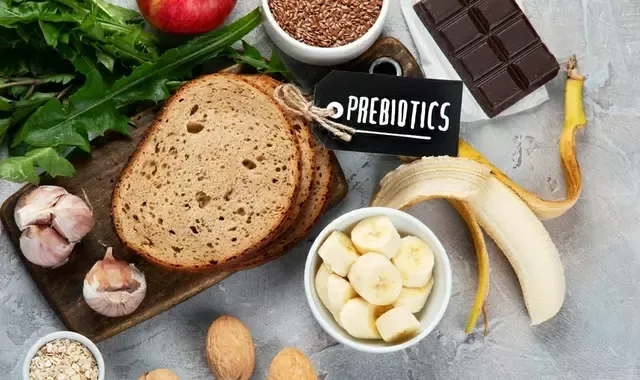In the quest for better health, many people turn to vitamin and mineral supplements to support their bodies needs. These supplements are an important part of maintaining good health, especially when we don't always get all the nutrients we need from our diets alone. In this comprehensive guide, we will explore the different types of vitamins, minerals, and supplements available and understand their significance in promoting optimal health.
1. What Are Vitamins, Minerals, and Supplements?
Vitamins, minerals, and supplements are essential components that support various bodily functions and promote overall health. Here's a closer look at each category:
Water-Soluble Vitamins
Water-soluble vitamins include vitamin C and the eight B vitamins (thiamine, riboflavin, niacin, pantothenic acid, pyridoxine, biotin, folate, and cobalamin).
These vitamins dissolve in water and are easily absorbed by the body.
They are not stored in large amounts and need to be replenished regularly through diet or supplementation.
Fat-Soluble Vitamins
Fat-soluble vitamins include vitamins A, D, E, and K. Unlike water-soluble vitamins, fat-soluble vitamins are absorbed along with dietary fats and stored in the body's fatty tissues and liver.
These vitamins can be stored for longer periods and released as needed.
It's important to note that excessive intake of fat-soluble vitamins can lead to toxicity.
Minerals
Minerals are inorganic substances that are vital for the body's proper functioning.
Some essential minerals include calcium, potassium, iron, zinc, magnesium, and selenium, among others.
These minerals are involved in various physiological processes, such as bone formation, nerve function, muscle contraction, and energy production.
Supplements
Supplements are products that contain vitamins, minerals, or other bioactive substances designed to supplement the diet.
They come in various forms, including capsules, tablets, powders, and liquids. Supplements can be used to fill nutrient gaps when dietary intake is insufficient or to support specific health goals.
2. Why Do We Need Vitamins, Minerals, and Supplements?
Vitamins, minerals, and supplements play crucial roles in maintaining and improving our overall well-being. Here are some key reasons why they are necessary:
Energy
Vitamins and minerals are essential for energy production in the body. B vitamins, such as thiamine, riboflavin, and niacin, play a vital role in converting food into energy. Iron is necessary for oxygen transport in the blood and energy metabolism.
Immunity
Vitamins and minerals support a robust immune system, helping to defend the body against infections and illnesses.
Vitamin C enhances immune function and acts as an antioxidant, while zinc is involved in immune cell development and function.
Anti-Inflammatory
Certain vitamins and minerals possess anti-inflammatory properties, helping to reduce chronic inflammation in the body.
Vitamin E, for example, acts as an antioxidant and helps protect cells from damage caused by free radicals.
Easy Breathing
Vitamins and minerals contribute to healthy respiratory function. Vitamin C supports lung health and may help reduce the risk of respiratory conditions.
Magnesium is involved in muscle relaxation, including the smooth muscles of the airways.
Cognitive Function
Nutrients, including B vitamins, vitamin E, and omega-3 fatty acids, are crucial for brain health and cognitive function. They support memory, concentration, and overall mental well-being.
Movement
Vitamins and minerals are essential for maintaining healthy muscles, bones, and joints. Calcium and vitamin D are crucial for bone health, while magnesium and potassium are involved in muscle contraction and relaxation.
Good Mood
Certain vitamins and minerals are important for regulating mood and mental health. For example, vitamin D deficiency has been linked to mood disorders such as depression. Omega-3 fatty acids and magnesium may also play a role in promoting positive mood.
3. Best Vitamins for Immunity
Vitamin D
Vitamin D plays a crucial role in supporting immune function. It helps regulate the immune response and enhances the activity of immune cells. Adequate levels of vitamin D have been associated with a reduced risk of respiratory infections and improved overall immune health. Sun exposure, fortified foods, and supplements are common sources of vitamin D.
Vitamin C
Vitamin C is well-known for its immune-boosting properties. It helps stimulate the production of white blood cells, which are essential for fighting off pathogens. Vitamin C also acts as an antioxidant, protecting immune cells from damage. Citrus fruits, berries, and leafy greens are excellent dietary sources of vitamin C, and supplements can be taken if needed.
Defense Shots
Defense shots are concentrated formulations that combine various immune-boosting ingredients to support the body's defense mechanisms. These shots often contain a combination of vitamins, minerals, antioxidants, and herbs known for their immune-enhancing properties. Defense shots provide a convenient and quick way to supplement key nutrients for immune health.
4. Best Vitamins for Hair, Skin, and Nails
Hyaluronic Acid
Hyaluronic acid is a naturally occurring compound in the body that helps maintain moisture levels in the skin, promoting hydration and elasticity. Supplementing with hyaluronic acid can support skin health, reduce the appearance of fine lines and wrinkles, and improve the overall texture of the skin. It may also benefit hair and nail health indirectly by promoting hydration and supporting the skin's health.
Collagen
Collagen is a protein that provides structure and strength to the skin, hair, and nails. As we age, collagen production naturally decreases, leading to signs of aging and weakened hair and nails. Supplementing with collagen can help replenish the body's collagen levels, promoting skin elasticity, reducing wrinkles, and strengthening hair and nails.
Hair, Skin & Nails Gummies
Hair, skin, and nail gummies are specifically formulated supplements that often contain a combination of vitamins, minerals, and other nutrients known to promote healthy hair, skin, and nails.
These gummies typically include biotin, vitamin E, vitamin C, and other beneficial ingredients that support the production of keratin (the protein that makes up hair, skin, and nails) and provide essential nutrients for their health and vitality.
5. Best Vitamins for Bones and Joints
Maintaining strong and healthy bones and joints is essential for overall mobility and quality of life. Here are some of the best vitamins and supplements that can support bone and joint health:
1. Omega-3, 6, 9
Omega-3, 6, and 9 fatty acids are known for their anti-inflammatory properties and can help reduce joint pain and stiffness. They also support joint lubrication and flexibility. These essential fatty acids can be obtained from sources like fish oil, flaxseed oil, and olive oil.
2. Glucosamine HCL & Chondroitin
Glucosamine and chondroitin are natural compounds found in the body that play a crucial role in maintaining healthy cartilage, the cushioning tissue between joints. Supplementing glucosamine HCL and chondroitin has been shown to improve joint mobility, reduce joint discomfort, and support overall joint health.
3. Collagen Creamer
Collagen is a protein that provides structure and support to the body, including the bones, joints, and connective tissues. Collagen creamer supplements can help promote joint elasticity and cartilage health, reducing the risk of joint pain and stiffness. They also support muscle repair and overall joint function.
6. Best Vitamins for Energy and Focus
When it comes to maintaining energy levels and enhancing focus, certain vitamins and minerals can play a crucial role. Here are some of the best options:
Vitamin B12
Vitamin B12 is essential for energy production and plays a key role in the metabolism of carbohydrates, fats, and proteins. It helps convert food into usable energy and supports the functioning of the nervous system. Vitamin B12 supplements are particularly important for individuals following a plant-based diet, as it is mainly found in animal products.
Iron
Iron is a mineral that is necessary for the production of red blood cells, which carry oxygen to the body's tissues and organs. Iron deficiency can lead to fatigue and reduced exercise tolerance. Supplementing with iron can help maintain optimal energy levels, especially for individuals with low iron levels.
Vitamin D
Vitamin D deficiency has been associated with fatigue and low energy levels. This vitamin plays a crucial role in various bodily functions, including supporting bone health and regulating mood. Adequate vitamin D levels are important for overall energy and vitality.
7. Best Vitamins for Digestion
A healthy digestive system is essential for nutrient absorption and overall well-being. Here are some vitamins and supplements that can support digestion:
Inulin
Inulin is a type of dietary fiber that acts as a prebiotic, nourishing the beneficial bacteria in the gut. It promotes healthy digestion, improves bowel regularity, and supports overall gut health. Inulin is commonly found in foods like chicory root and can also be taken as a supplement.
Vitacholine
Choline is an essential nutrient that supports liver health and helps with the breakdown of fats. Vitacholine supplementation can improve digestion by reducing fat accumulation in the liver, supporting bile acid production, and promoting overall liver function.
Gut Gummies
Gut gummies are supplements that contain beneficial probiotic strains and fiber to support a healthy gut microbiome. These live cultures help maintain a balanced gut flora, which is essential for proper digestion, nutrient absorption, and overall digestive health. Gut gummies can alleviate symptoms such as abdominal pain, bloating, and constipation.
8. Best Vitamins for Sleep and Relaxation
When it comes to achieving a good night's sleep and promoting relaxation, several vitamins can play a vital role. One such vitamin is 5-HTP, which is a precursor to serotonin, a neurotransmitter known for its calming and mood-regulating effects.
Additionally, magnesium is often recommended for its ability to relax muscles and promote a sense of calmness.
You can also consider incorporating relaxation supplements into your routine, which typically contain a blend of herbs and nutrients that support relaxation and sleep.
9. Best Vitamins for the Brain
Maintaining optimal brain health is crucial for overall cognitive function and mental well-being.
Ashwagandha, an adaptogenic herb, has been praised for its ability to reduce stress and improve focus and memory.
Omega-3 fatty acids, commonly found in fish oil or algae-based supplements, are known for their anti-inflammatory properties and positive impact on brain health.
Another noteworthy vitamin for brain health is pure caffeine, which, when consumed in moderation, can enhance alertness and cognitive performance.
10. Best Vitamins for Sexual Health
Taking care of sexual health is essential for overall well-being.
Zinc is a vital mineral that plays a crucial role in reproductive health and hormone production. It can contribute to improved sexual function and libido.
Maca, a root vegetable native to the Andes, is often used as a natural aphrodisiac and has been associated with enhanced sexual desire and performance.
Vitamin B6, also known as pyridoxine, is involved in hormone regulation and can support healthy sexual function.
11. Best Vitamins for Older Adults
As we age, our nutritional needs change, and certain vitamins become particularly important for maintaining overall health and vitality.
Vitamin D is crucial for bone health and can help prevent conditions like osteoporosis.
A-Z multivitamins provide a comprehensive blend of essential vitamins and minerals tailored to support the specific needs of older adults.
Additionally, incorporating coconut and collagen into the diet can promote healthy skin, joint function, and overall well-being in older adults.
12. Best Vitamins for Training
When it comes to training and physical performance, certain vitamins can provide an extra boost. Here are some of the best vitamins to consider:
Energy Bites
Energy Bites are a convenient and tasty option for maintaining energy levels during workouts and aiding in recovery. These bites typically contain a blend of protein and carbohydrates, providing the necessary fuel for your exercise routine.
Protein Gummies
Strength training and intense workouts can lead to muscle micro-tears, and proper muscle repair is essential for building larger and stronger muscles. Protein Gummies offer a delicious alternative to regular protein powders or bars, supplying 10 grams of protein per serving to support optimal muscle recovery.
Pre-Workout Gummies
To enhance your workouts and combat fatigue, Pre-Workout Gummies can be a great addition to your daily routine. These fruit-flavored gummies often contain added caffeine and vitamin B6. Caffeine helps open blood vessels, increasing oxygen delivery to the muscles and potentially boosting workout performance.
13. Best Vitamins for Vegans
Vegans follow a plant-based diet and may need to pay special attention to certain nutrients that are primarily found in animal products. Here are the best vitamins for vegans to consider:
Vitamin B Complex
Vitamin B12 is especially crucial for vegans since it is predominantly found in animal-derived foods. Vitamin B Complex supplements can help meet your nutritional needs on a plant-based diet.
These supplements play an essential role in energy production, metabolism, immune function, and other processes.
Additionally, they may contribute to improved skin health, enhanced immunity, and reduced inflammation.
14. Which Vitamins Should Not Be Taken Together?
While vitamins are generally safe, it's important to be aware of potential interactions when taking certain combinations. Here are some vitamins that should not be taken together:
Iron and Calcium
Calcium-containing supplements or antacids should not be taken simultaneously with iron supplements, as calcium can hinder iron absorption. It is recommended to wait for 1-2 hours between taking these two supplements.
Vitamin E and Vitamin K
When taken together, vitamin E may reduce the effectiveness of vitamin K supplementation. Both vitamins play a role in the blood clotting pathway, and their simultaneous intake can interfere with each other's functions.
Copper and Zinc
Copper and zinc are both minerals that are absorbed in the digestive system. Zinc tends to be favored over copper, which can result in increased zinc intake and potentially lead to copper deficiency.
Vitamin C and Vitamin B12: Taking vitamin C and vitamin B12 simultaneously can decrease the absorption of vitamin B12.
It is recommended to wait at least two hours between taking these two vitamins.
Folic Acid and Vitamin B12
Although both folic acid and vitamin B12 are B vitamins, taking them together may mask symptoms of B12 deficiency.
It's advisable to consult with a healthcare professional, such as your GP, before starting folic acid supplementation, as vitamin B12 levels may need to be checked first.
15. Can You Take Too Many Supplements?
While supplements are generally safe when taken as directed, it is possible to exceed safe levels if you take too many.
Fat-soluble vitamins, particularly vitamin A, can accumulate in fat cells and have negative side effects when taken in excess.
Additionally, some supplements may interact with prescription medications.
Therefore, it's important to consult with your doctor or healthcare professional if you have any concerns about taking supplements.
Talk To Your Doctor
This article is for educational use only and should not be used as a replacement for medical advice. My vitamins are not making any health or medical claims.
Please contact your relevant healthcare professional if you have concerns about supplementation.
Vitamin and mineral supplements can play a valuable role in supporting overall health and wellness.
From boosting immunity to promoting energy and focus, these supplements offer targeted benefits for various aspects of our well-being.
However, it's important to understand the specific vitamins and minerals that address individual needs and to take them in appropriate dosages.
Additionally, consulting with a healthcare professional is essential to ensure that supplements do not interfere with any existing medical conditions or medications.
By incorporating vitamins and minerals into a well-rounded lifestyle, individuals can optimize their health and enjoy the benefits of a balanced diet and targeted supplementation.
FAQs
1. What are vitamins, minerals, and supplements?
Vitamins, minerals, and supplements are essential components that support bodily functions and promote overall health. They include water-soluble vitamins, fat-soluble vitamins, minerals, and products designed to supplement the diet.
2. Why do we need vitamins, minerals, and supplements?
Vitamins, minerals, and supplements are necessary for various reasons, including energy production, immune support, anti-inflammatory effects, respiratory health, cognitive function, muscle and bone health, mood regulation, and more.
3. What are the best vitamins for immunity?
Vitamin D and vitamin C are highlighted as important for immune function. Defense shots, which combine various immune-boosting ingredients, are also mentioned.
4. What are the best vitamins for hair, skin, and nails?
Hyaluronic acid and collagen are mentioned as supplements that support skin hydration, elasticity, and texture. Hair, skin, and nail gummies containing biotin, vitamin E, and vitamin C are also recommended.
5.What are the best vitamins for bones and joints?
Omega-3, 6, and 9 fatty acids, glucosamine HCL, chondroitin, and collagen creamer are highlighted for their roles in supporting bone and joint health.
6. What are the best vitamins for energy and focus?
Vitamin B12, iron, and vitamin D are mentioned as important for maintaining energy levels and enhancing focus.
7. What are the best vitamins for digestion?
Inulin, vitacholine, and gut gummies are recommended for supporting digestion and overall gut health.
8. What are the best vitamins for sleep and relaxation?
Vitamins like 5-HTP and magnesium are mentioned as beneficial for promoting sleep and relaxation. Relaxation supplements containing a blend of herbs and nutrients are also suggested.
9. What are the best vitamins for the brain?
Ashwagandha, omega-3 fatty acids, and caffeine (in moderation) are highlighted as vitamins that can support brain health and cognitive function.
10. What are the best vitamins for sexual health?
Zinc, maca, and vitamin B6 are mentioned as vitamins that can contribute to improved sexual function and libido.
11. What are the best vitamins for older adults?
Vitamin D, A-Z multivitamins, coconut, and collagen are recommended for older adults to support bone health, overall nutrition, and skin health.
12. What are the best vitamins for training?
Energy bites, protein gummies, and pre-workout gummies are suggested as supplements to enhance energy levels, muscle recovery, and workout performance.
13. What are the best vitamins for vegans?
Vitamin B Complex, including B12, is mentioned as crucial for vegans. These supplements help meet nutritional needs and support energy production, metabolism, and immune function.
14. Which vitamins should not be taken together?
Interactions between certain vitamins are highlighted: iron and calcium, vitamin E and vitamin K, copper and zinc, and vitamin C and vitamin B12. It is recommended to wait between taking these vitamins to avoid potential interference.
15. Can you take too many supplements?
While supplements are generally safe, it is possible to exceed safe levels if you take too many. Fat-soluble vitamins, such as vitamin A, can have negative side effects when taken in excess. It's important to consult with a healthcare professional to ensure safe supplementation.
16. Is it necessary to consult with a doctor before taking supplements?
Yes, it is advisable to consult with a healthcare professional before starting any supplementation, especially if you have concerns or are taking prescription medications. A doctor can provide personalized advice and address specific health needs.


















